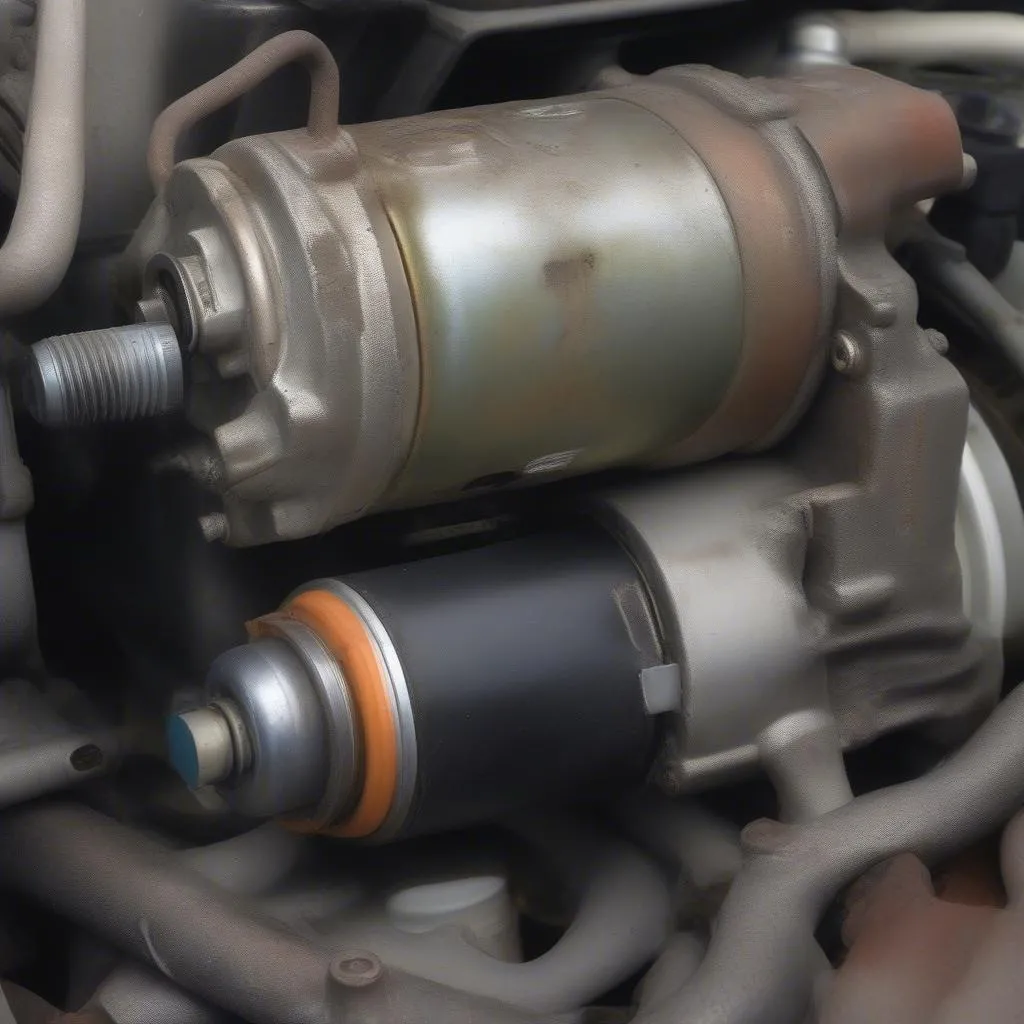Picture this: It’s a crisp Monday morning, you’re already running late, and you hop into your trusty 2017 Audi A4. You turn the key, expecting the usual smooth purr of the engine, but instead, you’re met with a disconcerting rumble. Sounds familiar?
This scenario is a common anxiety trigger for many car owners. A rumbling sound when starting your car can signal a range of issues, from minor hiccups to more serious mechanical woes.
Deciphering the Rumble: What Does It Mean?
For a seasoned mechanic like John Davies from Birmingham, UK, “a car rumbling when starting is like a patient describing their symptoms—it’s the first clue in diagnosing the problem.” This rumble isn’t just an annoyance; it’s your car’s way of communicating that something needs attention.
From a technical standpoint, the rumble usually points to a problem with one or more components involved in the starting process. Think of it like a chain reaction: the battery sends power to the starter, the starter cranks the engine, and the engine roars to life. A disruption anywhere in this chain can lead to that dreaded rumbling sound.
Common Culprits Behind the Starting Rumble
1. A Tired Battery
Just like us, car batteries get tired. A weak battery might not have enough juice to properly crank the engine, resulting in a slow, rumbling start. This is especially common in cold weather.
2. A Struggling Starter Motor
The starter motor is responsible for setting your engine in motion. A worn-out starter motor might struggle to turn the engine over, leading to a grinding or rumbling noise during startup.
 Faulty starter motor in a car
Faulty starter motor in a car
3. Clogged Fuel Injectors
Fuel injectors are responsible for delivering the right amount of fuel to the engine cylinders. If they are clogged or dirty, the engine might not receive enough fuel upon starting, causing it to sputter and rumble.
4. Exhaust System Leaks
A leak in your exhaust system can cause a variety of noises, including a rumbling sound, especially during startup.
5. Loose or Damaged Belts
A loose or damaged serpentine belt, which drives various engine components, can also create a rumbling sound when starting.
When a Rumble Spells Trouble
While some causes are minor, others, like a failing starter motor, can leave you stranded if not addressed promptly.
“Ignoring a persistent rumbling sound is like ignoring a toothache—it might seem harmless at first, but it can lead to bigger, more expensive problems down the line,” warns Sarah Jenkins, author of “Car Care for Everyone.”
Troubleshooting the Rumble
So, your Car Rumbles When Starting. Now what?
- Listen Carefully: Is it a grinding sound, a whirring noise, or a deep rumble? The type of sound can offer clues about the underlying cause.
- Check Your Battery: A simple battery test at your local auto parts store can rule out a weak battery.
- Inspect the Belts: Visually check your serpentine belt for cracks, fraying, or looseness.
- Seek Professional Help: If the problem persists, don’t hesitate to consult a qualified mechanic, especially if you suspect a more serious issue like a failing starter motor or fuel system problem.